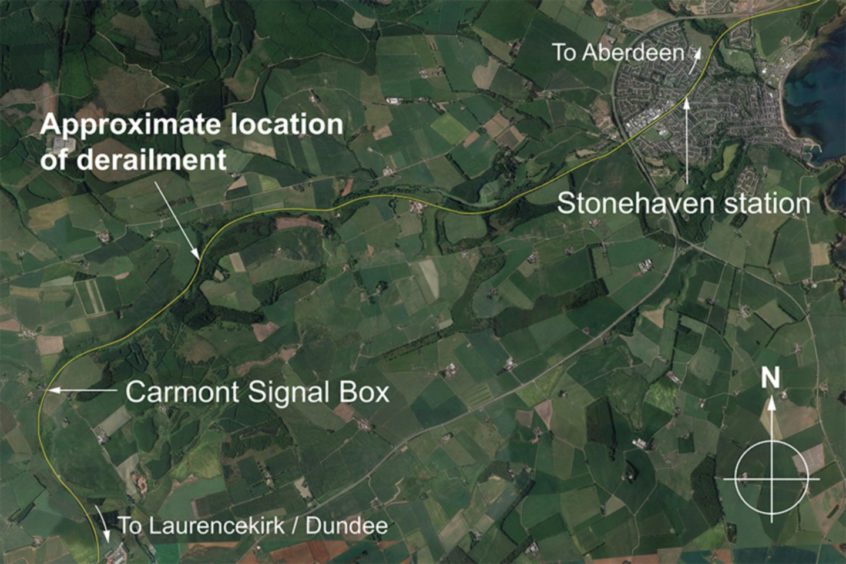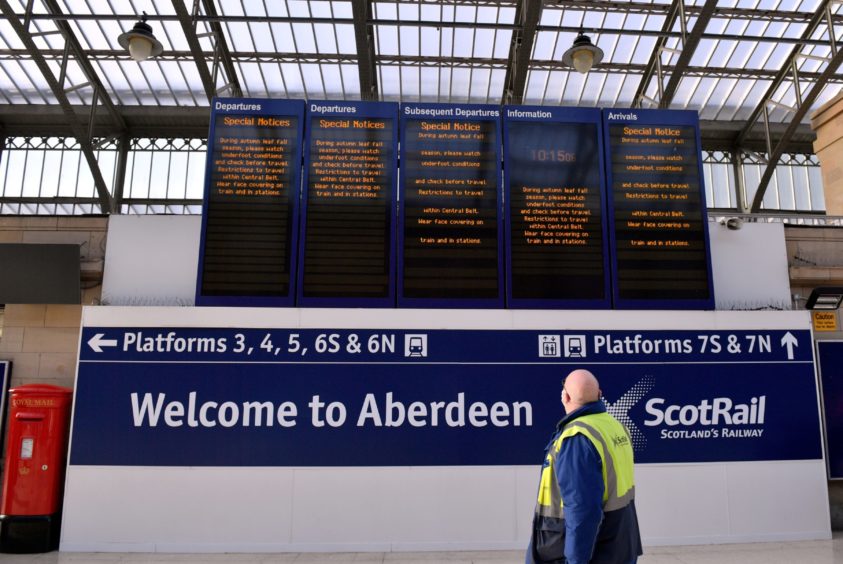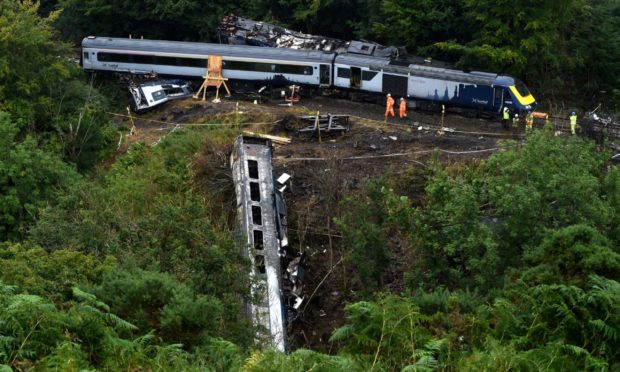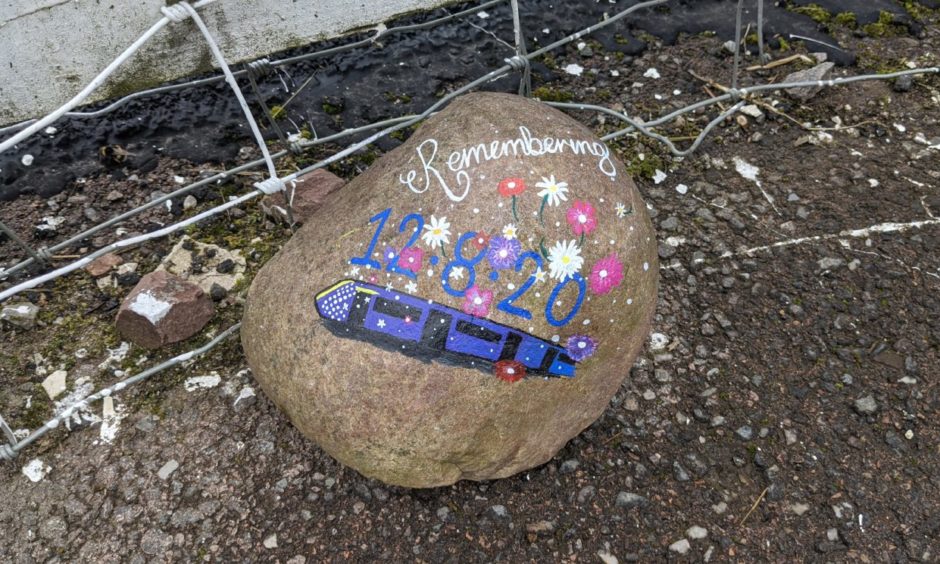Experts investigating the Stonehaven rail tragedy have set out more than 50 recommendations to make the UK’s rail network more resilient against the “substantial challenge” of extreme weather and climate change.
It has been seven months since train driver Brett McCullough, conductor Donald Dinnie and passenger Christopher Stuchbury were killed after the Aberdeen to Glasgow Queen Street service crashed at Carmont, south of Stonehaven.
Formal investigations into the derailment are ongoing but interim findings suggest that heavy rainfall on the morning of August 12 played a “significant role” in washing out stone from land above the tracks that the train later collided with.
Rail bosses say they are facing a “substantial challenge” in managing rail infrastructure in the face of extreme weather and UK transport secretary Grant Shapps asked Network Rail to conduct a “wide-ranging” review of the impact of climate change on the resilience and safe performance of its network.
The study, which commissioned independent guidance from renowned experts Lord Robert Mair and Dame Julia Slingo, was tasked with establishing how to best manage earthworks, drainage and weather to minimise the risk of a repeat incident.

As part of the review, two independent expert taskforces – one on earthworks and
one on weather – set out more than 50 recommendations, including greater focus on drainage initiatives, upskilling workers, looking at organisational design and culture, and reviewing commercial contracts and services.
Network Rail has already started implementing some of the recommendations but, in a letter to the transport secretary, Network Rail chief executive Andrew Haines set out the “huge” challenge facing the UK’s railways.
He said: “Most earthworks alongside the railway were built around 150 years ago and were poorly engineered by modern standards – cuttings were excavated at overly-steep angles and embankments formed by tipping uncompacted soil from cuttings.

“Drainage too, which is inherently linked to the stability of earthworks, is in many places also around 150 years old and was installed to a pre-set design irrespective of natural catchment or likely rainfall.
“When this is coupled with the more frequent and more intense rainfall we are experiencing due to a changing climate, it is inevitable we see more earthworks failures.
“Heavy rain caused ground slips at many embankments and cuttings across the entire
network last year and while disruptive, none other than Carmont caused derailment.
“We all appreciate that is little comfort to those left forever affected by that awful morning but it does show how far-reaching this challenge is.
“Even with every measure in place, predicting exactly where and when earthworks will fail is currently almost impossible, and while that is very unlikely to result in a derailment, it is likely to significantly disrupt train services.”
Mr Haines said it is “simply not practicable” to rebuild nearly 200,000 earthworks assets alongside 20,000 miles of track so instead the group has been upgrading the Victorian infrastructure where possible and “working hard to manage risk”.
Further reviews still to come
The review builds on the Resilience of Rail Infrastructure interim report, which was also commissioned by Grant Shapps immediately after the Stonehaven incident and published in September 2020.
The Rail Accident Investigation Branch (RAIB) is due to publish the findings of its own independent investigation later this year.
Mr Shapps said: “The accident at Stonehaven in August was devastating and my thoughts remain with the families of Brett McCullough, Donald Dinnie and Christopher Stuchbury, who tragically lost their lives.
“We must do everything we can to keep our railways safe and I immediately commissioned this report so that lessons would be learnt without delay.
“These findings will inform our work as we push ahead with measures to make our railway more resilient in future and less vulnerable to sudden tragedies like that near Stonehaven.”
‘Tragedy that shook Scotland’
West Aberdeenshire and Kincardine MP Andrew Bowie said the Carmont crash “was a tragedy that shook Scotland and its repercussions are still being felt across the north east”.
He added: “It is important that Network Rail investigated the circumstances fully, so such a horrible accident can never happen again.
“The full report makes challenging reading but shows all agencies involved have treated this matter with the seriousness and urgency it deserved.”



